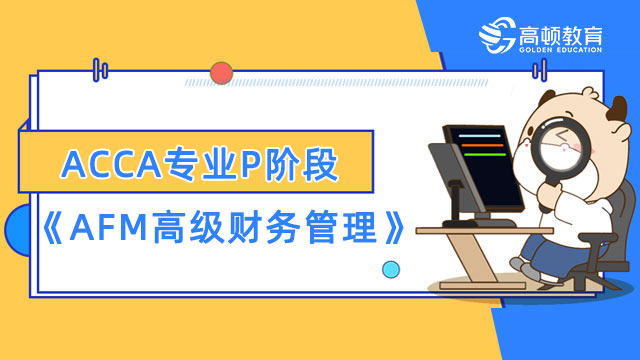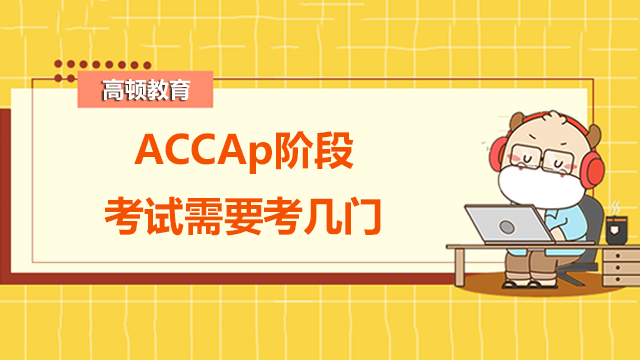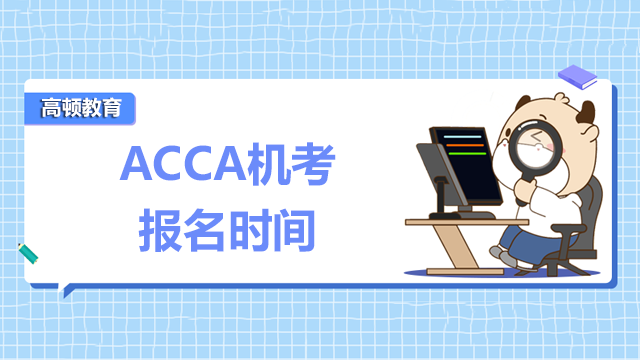ACCA P2重点:The Integrated Report Framework(一)
来源:
高顿网校
2015-10-09
知识点都没理解透怎么考试?善良的高顿网校小编为学员们贴心整理了ACCA P2重点:The Integrated Report Framework,以下是Part 1哦。
In 2013, the International Integrated Reporting Council (IIRC) released a framework for integrated reporting. This followed a three-month global consultation and trials in 25 countries.
The framework establishes principles and concepts that govern the overall content of an integrated report. An integrated report sets out how the organisation’s strategy, governance, performance and prospects, which lead to the creation of value. There is no benchmarking for the above matters and the report is aimed primarily at the private sector but it could be adapted for public sector and not-for-profit organisations.
The primary purpose of an integrated report is to explain to providers of financial capital how an organisation creates value over time. An integrated report benefits all stakeholders interested in a company’s ability to create value, including employees, customers, suppliers, business partners, local communities, legislators, regulators and policymakers, although it is not directly aimed at all stakeholders. Providers of financial capital can have a significant effect on the capital allocation and attempting to aim the report at all stakeholders would be an impossible task and would reduce the focus and increase the length of the report. This would be contrary to the objectives of the report, which is value creation.
Historical financial statements are essential in corporate reporting, particularly for compliance purposes, but do not provide meaningful information regarding business value. Users need a more forward-looking focus without the necessity of companies providing their own forecasts and projections. Companies have recognised the benefits of showing a fuller picture of company value and a more holistic view of the organisation.
The International Integrated Reporting Framework will encourage the preparation of a report that shows their performance against strategy, explains the various capitals used and affected, and gives a longer-term view of the organisation. The integrated report is creating the next generation of the annual report as it enables stakeholders to make a more informed assessment of the organisation and its prospects.
Principle-based framework
The IIRC has set out a principle-based framework rather than specifying a detailed disclosure and measurement standard. This enables each company to set out its own report rather than adopting a checklist approach. The culture change should enable companies to communicate their value creation better than the often boilerplate disclosures under IFRS. The report acts as a platform to explain what creates the underlying value in the business and how management protects this value. This gives the report more business relevance rather than the compliance led approach currently used.
Integrated reporting will not replace other forms of reporting but the vision is that preparers will pull together relevant information already produced to explain the key drivers of their business’s value. Information will only be included in the report where it is material to the stakeholder’s assessment of the business. There were concerns that the term ‘materiality’ had a certain legal connotation, with the result that some entities may feel that they should include regulatory information in the integrated report. However, the IIRC concluded that the term should continue to be used in this context as it is well understood.
The integrated report aims to provide an insight into the company’s resources and relationships that are known as the capitals and how the company interacts with the external environment and the capitals to create value. These capitals can be financial, manufactured, intellectual, human, social and relationship, and natural capital, but companies need not adopt these classifications. The purpose of this framework is to establish principles and content that governs the report, and to explain the fundamental concepts that underpin them. The report should be concise, reliable and complete, including all material matters, both positive and negative in a balanced way and without material error.
Integrated reporting is built around the following key components:
1. Organisational overview and the external environment under which it operates
2. Governance structure and how this supports its ability to create value
3. Business model
4. Risks and opportunities and how they are dealing with them and how they affect the company’s ability to create value
5. Strategy and resource allocation
6. Performance and achievement of strategic objectives for the period and outcomes
7. Outlook and challenges facing the company and their implications
8. The basis of presentation needs to be determined, including what matters are to be included in the integrated report and how the elements are quantified or evaluated.
高顿网校温馨提醒
各位考生,2015年ACCA备考已经开始,为了方便各位学员能更加系统地掌握考试大纲的重点知识,帮助大家充分备考,体验实战,高顿网校开通了全免费的ACCA题库(包括精题真题和全真模考系统),题库里附有详细的答案解析,学员可以通过多种题型加强练习。戳这里进入ACCA免费题库>>>
| ACCA网络课程 | 课程专业名称 | 讲师 | 试听 |
 85%的人正在学习该课程 85%的人正在学习该课程 | ACCA 全维度网课体验课程 实景课堂与独立录制 覆盖所有知识点,根据学习计划推进学习进度 | 高顿名师 |  |
 70%的人正在学习该课程 70%的人正在学习该课程 | ACCA网课全科卡(8.2折) 为零基础刚开始学习ACCA的学员特别定制 | 高顿名师 |  |
精彩推荐:
版权声明:本条内容自发布之日起,有效期为一个月。凡本网站注明“来源高顿教育”或“来源高顿网校”或“来源高顿”的所有作品,均为本网站合法拥有版权的作品,未经本网站授权,任何媒体、网站、个人不得转载、链接、转帖或以其他方式使用。
经本网站合法授权的,应在授权范围内使用,且使用时必须注明“来源高顿教育”或“来源高顿网校”或“来源高顿”,并不得对作品中出现的“高顿”字样进行删减、替换等。违反上述声明者,本网站将依法追究其法律责任。
本网站的部分资料转载自互联网,均尽力标明作者和出处。本网站转载的目的在于传递更多信息,并不意味着赞同其观点或证实其描述,本网站不对其真实性负责。
如您认为本网站刊载作品涉及版权等问题,请与本网站联系(邮箱fawu@gaodun.com,电话:021-31587497),本网站核实确认后会尽快予以处理。
点一下领资料
【整理版】ACCA各科目历年真题
真题高频考点,刷题全靠这份资料
下载合集
acca全科学习思维导图
梳理核心考点,一图看懂全部章节
下载合集
2023年acca考纲解析
覆盖科目重难点,备考按照计划走
下载合集
acca备考 热门问题解答
- acca考试怎么搭配科目?
-
建议优先选择相关联的科目进行搭配报考,这样可以提高备考效率,减轻备考压力,1、F1-F4:为随时机考科目,难度较低,这里可以自行随意选择考试顺序。2、F5-F9:如果你的工作的和财务会计或者审计有关、或者你比较擅长财务和审计的话,推荐先考F7和F8。你可以选择一起考ACCA考试科目F7和F8或者先考F7(8)再考F8(7),这就要取决你一次想考几门。3、P阶段:选修科目中,建议企业首选AFM!第二部分科目进行选择,如果AA和SBR掌握学生更好,可以通过选择AAA,如果SBL掌握的好,可以自己选择APM。
- acca一共几门几年考完?
-
acca一共有15门考试科目,其中有必修科目和选修科目,考生需要考完13门科目才能拿下证书。
- acca一年考几次?
-
acca一年有4次考试,分别是3月、6月、9月和12月,分季机考科目是采取的这类四个考季的模式,而随时机考则是没有这方面的时间规定限制,可以随报随考。
- acca的含金量如何?
-
ACCA证书的含金量是比较高的,从就业、能力提升、全球认可等角度来说,都是比较有优势的证书,其含金量主要表现在以下几个方面:1、国际化,认可度高;2、岗位多,就业前景好;3、缺口大,人才激励。
严选名师 全流程服务
其他人还搜了
热门推荐
-
acca专业阶段考试科目有哪些?究竟都考些什么? 2023-04-23
-
accaP阶段科目考完需要多久?速戳了解! 2023-03-28
-
ACCA高级课程是哪几门?和基础课程比难度怎么样? 2023-03-17
-
sbr和sbl哪个难?accaP阶段先考哪个? 2023-03-16
-
accaP阶段报名费是多少?一文介绍全了! 2023-03-14
-
accaP阶段有哪些科目?各科目详细介绍! 2023-03-14
-
accap阶段考试顺序是怎样的?选修科目怎么选? 2023-03-10
-
acca考试科目:《ATX高级税务》重点详解! 2023-03-06
-
acca考试科目:《APM高级业绩管理》重点详解! 2023-03-06
-
acca考试科目:《AFM高级财务管理》重点详解! 2023-03-06
-
accap阶段有效期是多久?需要几年内考完? 2023-03-01
-
accaP阶段选修选哪两门?各科难度对比来了! 2023-02-28
-
2023年acca的sbl怎么学?点击查收备考攻略! 2023-02-24
-
acca考试p阶段科目题型,附各科分值参考! 2023-02-23
-
accap阶段要考几门?重难点是什么? 2023-02-10
-
accap阶段要考几门?重难点是什么? 2023-02-10
-
accaP阶段科目怎么搭配?先考哪门? 2023-02-09
-
ACCA专业P阶段:《AFM高级财务管理》复习攻略 2023-01-30
-
accap阶段选哪两门?考试重难点介绍! 2023-01-17
-
acca考试科目:《AAA高级审计与鉴证》题型及重点! 2023-01-17
-
acca专业阶段考试难度分析,选修科目报考指南来了! 2023-01-12
-
accap阶段报考顺序推荐,先报哪个好? 2022-12-15
-
ACCAp阶段一次最多考几门?成绩有效期是多久? 2022-08-24
-
ACCA的p阶段需要备考多久才够?考试难度怎么样? 2022-08-18
-
ACCAp阶段考试需要考几门?考试时间是哪天? 2022-08-15
-
ACCA考试P阶段考几门?P阶段成绩有效期是多久? 2022-08-12
-
ACCAP阶段科目难度高吗?P阶段是机考吗? 2022-08-10
-
ACCA最后四门难考吗?通过率怎么样? 2022-07-19
-
ACCA英语不好怎么办?怎么提高英语? 2022-07-14
-
ACCA机考报名时间是什么时候?怎么报考? 2022-07-14
 更多服务
更多服务








































